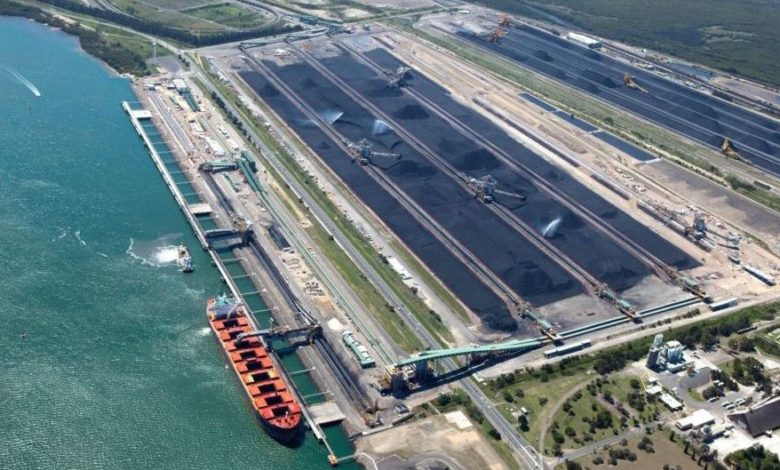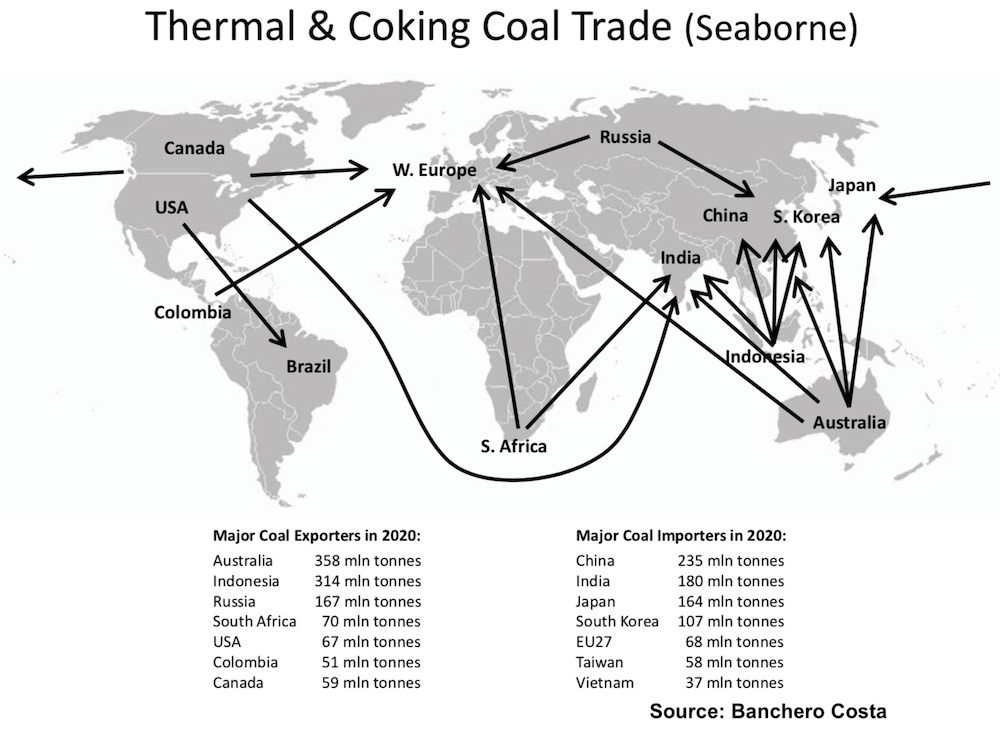COP26 coal deal will see shift in dry bulk trading patterns

Global seaborne maps for the coal trades are set to be redrawn in the wake of another significant announcement at COP26, the global climate summit, but not to the extent that some environmentalists and event organisers have been claiming. Yesterday, 77 signatories pledged to phase out coal by 2050. Nevertheless, some of the world’s biggest names in coal including China, India, the US and Australia refused to sign on to the plan.
Signatories of the COP26 agreement on Thursday are to shun investments in new coal plants at home and abroad, and phase out coal-fuelled power generation in the 2030s in richer countries, and the 2040s for poorer nations. The commitments are not binding, however.
Separately, the Powering Past Coal Alliance – an international campaign aimed at phasing out the fuel – said it had secured 28 new members, including Ukraine, which pledged to quit the fuel by 2035.
“Coal has been in systemic decline for years, but this really is the death knell,” claimed Bill Hare, a climate scientist and CEO of Climate Analytics. “The economics just don’t stack up anymore without generous subsidisation at the expense of taxpayers – their money, their environment and their health. It’s a good step – probably the most robust development at the COP so far. Wealthier countries will need to provide support for some of the poorer countries to phase out by 2040.”
“Today I think we can say that the end of coal is in sight,” said Britain’s COP26 president, Alok Sharma.
However, a glance at the world’s largest importers and exporters of the commodity (see map below) – and the notable missing names to the pledge suggests the coal shift will not be as dramatic as the summit’s organisers had been hoping for.
Coal produced around 37% of the world’s electricity in 2019. It is still the second most traded dry bulk commodity with 1.13 bln tonnes shipped in 2020 and growth in imports to China and India compensating for declining demand from Europe and Japan.


Pledges mean nothing. This is, like most of the empty rhetoric coming from the Glasgow boondoggle and is utterly meaningless. The golden pheasants of the Climate Change bandwagon don’t even recognise the hypocrisy of jetting in and out and then haranguing everyone else to change their personal and economic lifestyles .
Perhaps some of the funding being bandied about could be directed to solving poverty, disease and hunger in Yemen and Ethiopia/Tigre and have an immediate impact rather than chasing some illusory fantasy.
Climate activism is an industry itself; rather than a way to protect the climate is dedicated to sale new and increasingly ambiguous international agreements like this.
Australian national, Bill Hare became the Director of International Climate Policy at Greenpeace in 1992 and was a major player at Kyoto in 1997. He was still in that role whilst seconded from Greenpeace to Potsdam from 2002 to 2008, working with John Schellnhuber and Stefan Rahmstorf. His description on the Potsdam website at that time said: “Explaining environmental issues to policy makers, IPCC negotiator”. His degree is an honorary one from Griffiths University, it’s a bit of a stretch that the article calls him a climate scientist, he is a professional activist.
“The economics just don’t stack up anymore without generous subsidisation at the expense of taxpayers” A perfect description of renewables, except the economics never ever stacked up without subsidies..
“The commitments are not binding, however.” Coal plants currently and recently built by China at home and abroad will be in operation for 50 years, by which time we will have forgotten about global warming and be worrying about global cooling again.